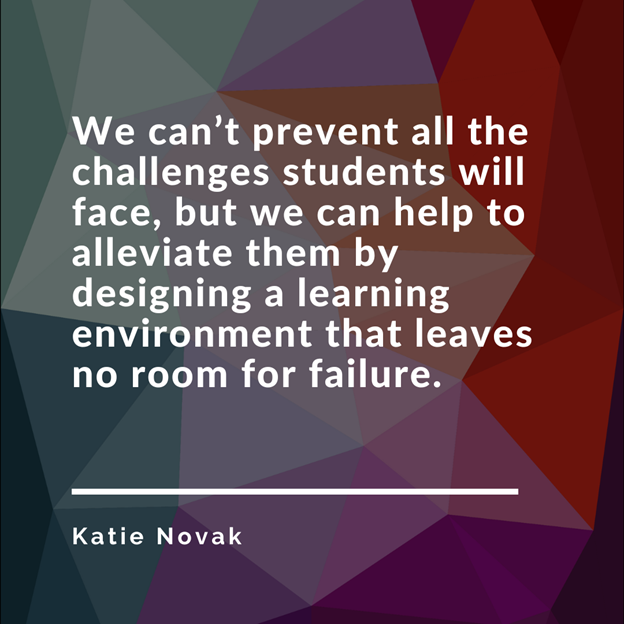Latest News
Fall 2024 | Updates and resources to support inclusive education and post-school success for students with disabilities.
Fall Newsletter
October 22, 2024
Greetings from CCTS, where we hope your school year is off to a great start. We're reaching out with our Fall newsletter, where we're eager to share updates and resources to support inclusive education and post-school success for students with disabilities.
Read on for details about a new self-paced training module that focuses on strategies to increase inclusion for students with Intellectual and Developmental Disabilities. We also provide an overview of the newly updated Universal Design for Learning Guidelines 3.0.
Thank you for your continued partnership in completing the annual Post-School Survey, which plays a vital role in understanding the postsecondary experiences of students with disabilities. The data gathered helps shape the services and supports that drive better outcomes for students. A reminder: the survey for 2022-23 leavers closes on November 1, so please be sure to submit your data by then!

New Training Module: Meaningful Inclusion of Students with IDD in CTE Classrooms
Module 6: Meaningful Inclusion of Students with Intellectual and Developmental Disabilities (IDD) in Career and Technical Education (CTE) Classrooms is now available as part of our self-paced Partnerships for Inclusion: Special Education and CTE training course.
CTE classes provide valuable opportunities for all students by creating pathways to further education and employment. CTE programs help students develop essential workplace competencies including effective communication, critical thinking, and collaboration with others. Including students with IDD in CTE programs ensures they have the same opportunities to develop these important skills and prepare for future employment.
This new module offers guidance for promoting meaningful inclusion for students with IDD within CTE settings. It starts with an overview of why inclusion is critical for these students and offers strategies to foster inclusive learning environments. Additionally, the module includes recommendations for evaluating inclusionary practices and features video examples showcasing effective inclusion in CTE classrooms.
We invite educators and staff to explore this new resource to support their ongoing efforts in creating inclusive educational environments.
Explore CCTS Training Courses
CCTS offers self-paced, online transition training courses designed for educators, agencies, and families/caregivers.
UDL Guidelines 3.0
Universal Design for Learning (UDL) Guidelines were first published in 2008 to help educators create inclusive learning environments to support students with diverse needs. The recent release of UDL Guidelines 3.0 provides updated strategies for implementing the UDL framework based on research and feedback from educators. The new version builds on previous frameworks to further improve accessibility and engagement in classrooms.
UDL Guidelines 3.0 highlights three core principles:
Multiple Means of Engagement
- Recognizing the importance of centering students’ interests and identities, this principle emphasizes creating learning environments where students feel a sense of belonging, fostering engagement through culturally responsive practices.
- It also highlights the role of joy and play in both teaching and learning, encouraging educators to cultivate an atmosphere of curiosity and creativity.
- Additionally, the guidelines promote empathy and the use of restorative practices to strengthen relationships.
Multiple Means of Representation
- Recognizing the value in representing a diversity of identities and perspectives, educators are encouraged to consider how different people, cultures, and languages are reflected in their teaching.
- This principle emphasizes providing information in various formats, ensuring that students can access and process content in ways that suit their learning needs.
- It places value on multiple ways of making meaning and building knowledge.
Multiple Means of Action and Expression
- Recognizing that students differ in how they demonstrate what they’ve learned, best practice is to provide students multiple ways to express their knowledge and skills.
- UDL 3.0 honors and values a wide variety of forms of communication, ensuring that students can share their learning in ways that align with their strengths.
- It calls for centering and valuing historically overlooked forms of expression by addressing biases and challenging exclusionary practices to create more inclusive, accessible spaces.
In addition, UDL 3.0 highlights the idea that all students, not just those with disabilities, benefit from flexible learning environments. To this end, it includes a focus on social-emotional learning (SEL) to foster inclusive classrooms where students feel emotionally supported as well as academically engaged.
As the field of education continues to evolve, the UDL framework remains a powerful tool for promoting equity and ensuring that all students have the opportunity to thrive.
For additional information on UDL 3.0, we recommend exploring the following resources from CAST:
Post-School Survey
Deadline approaching
This is a reminder that the annual Post-School Survey closes on Nov. 1 at 11:59 p.m. By that time, all school districts must:
- Verify Leaver Survey Lists for all schools in the TSF2 data collection platform, even if the school has zero leavers.
- Submit all leaver surveys as 100% complete.
CCTS is available for technical assistance. If you have questions about completing the survey, please visit the Survey Guidance for Educators page on the CCTS website or email ccts@seattleu.edu.
Explore Post-School Outcome (PSO) data
PSO data are collected through the annual Post-School Survey for state and federal reporting. Data are also used in schools and districts for continuous programmatic improvement.
Subscribe to CCTS Newsletters
Stay connected with CCTS by subscribing to our quarterly newsletters.